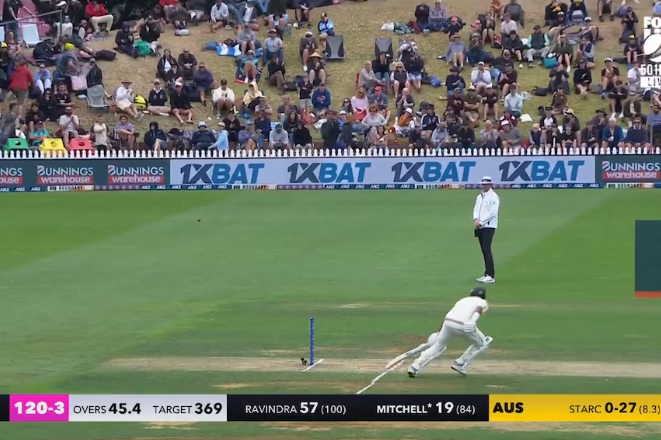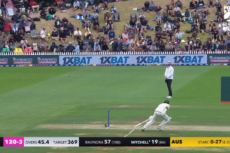Gambling advertising has been the talk of the media and sporting world for months now, but how does the general public weigh in? An independent survey conducted by Bastion for B&T with over 350 participants has revealed that only 24.65 per cent of participants feel that a ban on gambling advertising will actually work.
Last month, Social Services Minister Amanda Rishworth said that she is still working through the 32 recommendations from the parliamentary inquiry into the danger of online gambling. In addition to the primary recommendation of phasing out all gambling ads over three years, the inquiry suggested a national strategy that would focus on reducing gambling harm and creating a dedicated regulator with responsibility for all licensing and regulation.
However, according to the results, less than 25 per cent of participants felt the ban would work. 51.84 per cent did not believe the proposed ban would work, and 23.51 per cent reported that they were unsure of the potential success of the proposal.
Many respondents who felt that the ban wouldn’t work said that since gambling is an addiction, those who are currently engaged in the practice will likely need more than an advertising block to stop the practice. It was also widely reported that gambling is a tradition and an established practice that is already ingrained in Australian culture and that it would take a massive cultural shift to change that. “Australia has a strong gambling culture, and a ban on ads may not be enough to shift entrenched attitudes towards gambling,” one survey respondent said.
“Why should we ban certain companies from advertising in certain ways? Banning smoking advertising has not stopped smoking, while will the same happen for gambling? People need to learn to take responsibility for themselves and learn some self-control,” another explained.
Another respondent said that while the ban may work in a number of generations time, the immediate impact on adults who are already aware of the potential of gambling will still likely continue to engage in the practice. “Many gamblers are a product of their established environment. For example, the family norm or pastime of their social circle,” one said.
“It would help. But expecting just one action to fix a complicated problem is unrealistic,” said one respondent who answered that they were unsure of the success of the potential ban.
Reclaiming the game
The majority of participants did felt that gambling and sports should not be connected, with 61.47 per cent saying that gambling brands shouldn’t be allowed to advertise around sporting events and 57.79 per cent saying that these brands should not be allowed to sponsor sporting teams, athletes and events.

Many respondents who felt that these ads have no place in sports reported the belief that this kind of advertising encourages gambling at the place where it is “most likely to occur”.
“It’s dangerous, and youths are at risk of developing a bad gambling habit,” one participant said. “Gambling is a stain on society and ruins people’s lives,” said another.
Others labelled the ads inappropriate, putting children at risk and taking away from the game/sport itself. “Kids use the grounds, and they don’t need any encouragement to gamble,” one said.
Those who did feel that gambling advertising does have a place in sports were influenced mainly by the desire for funding and expansion of sporting communities. “They put money into sports. Without their money, a lot of clubs wouldn’t survive,” one respondent said.
“There is a huge community benefit from more sponsorship for events and athletes,” said another.
“All forms of sport need funds to stay alive. Sports play an important part in keeping people, especially children, healthy and engaged,” another respondent explained.
Others reported that banning these ads is a form of “censorship” and, if done in moderation, they don’t believe there is a problem with the practice or the ads. “It’s fun and, if not done all the time, may not cause addiction,” one respondent said.
“As long as it is done responsibly, this should be allowed,” said another.
Who are the big players, and where are they buying?
Overall, the study found that gambling advertising is incredibly salient. 61.19 per cent of participants recalled seeing a gambling advertisement in the last month, and only 26.35 per cent had no recollection of seeing one.
SportsBet was by far the most memorable gambling brand, with 87.50 per cent of respondents who had seen a gambling advertisement in the last month reporting that they recalled seeing this brand. This was followed by Ladbrokes at 72.69 per cent, TAB at 47.22 per cent, and Bet365 at 44.91 per cent.
These results align with what TAB reported earlier this year when it called for a reduction in gambling advertising in places where gambling is not expected to occur. The wagering brand slammed its competitor, SportsBet, for being one of the country’s most significant contributors to the gambling industry. “In the first half of 2022, they spent almost double what other operators spent on advertising,” Tabcorp told the parliamentary inquiry.
TV dominated the mediums, with 84.26 per cent of those who recalled seeing a gambling advertisement in the last month having witnessed it via this medium. Social media was also a repeat offender, with 53.70 per cent of those who’d seen gambling advertising in the last month reporting they had seen it on social. Interestingly, email and SMS were the least likely occurrences, with only 10.19 per cent and 9.26 per cent of respondents saying they had seen ads this way.
